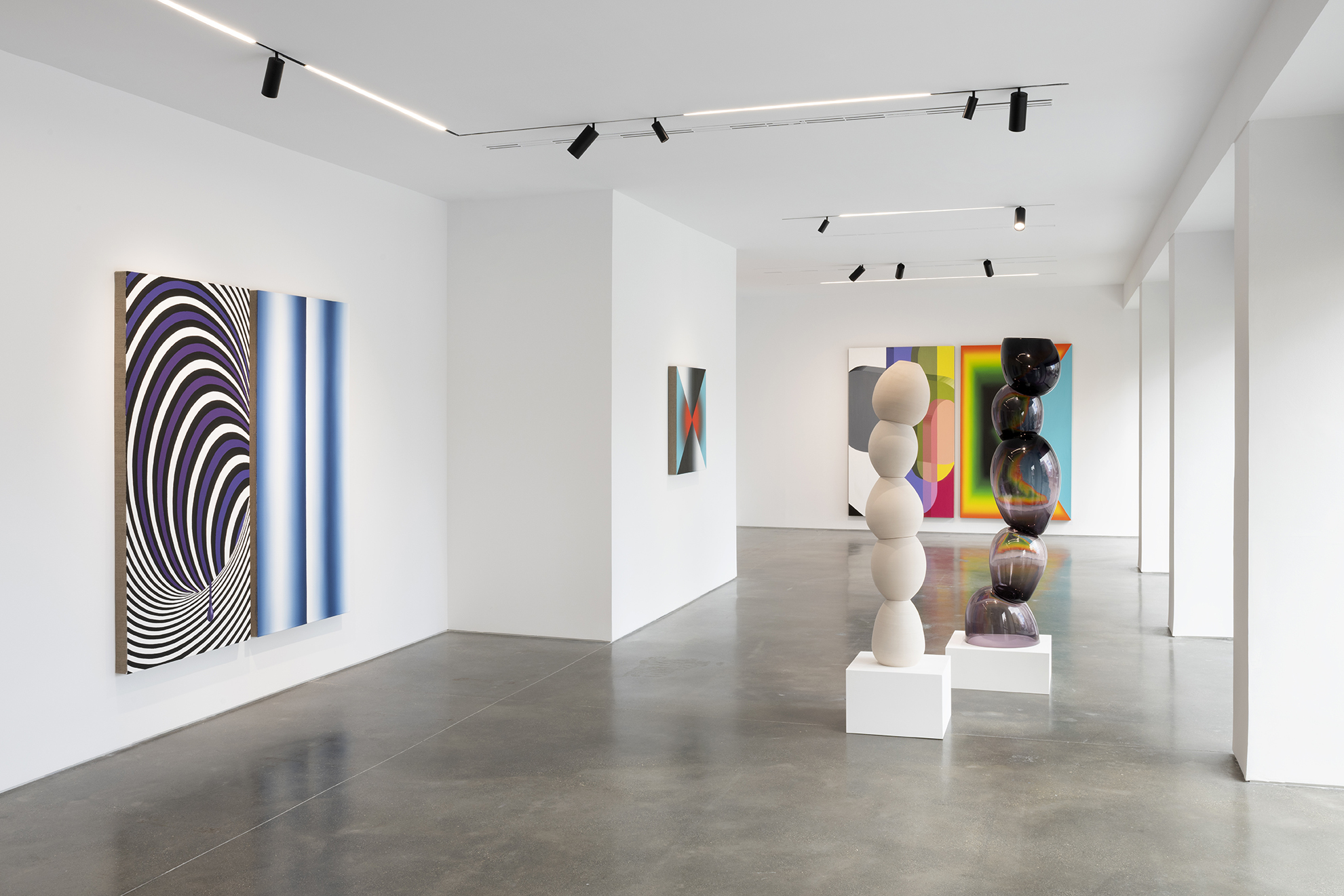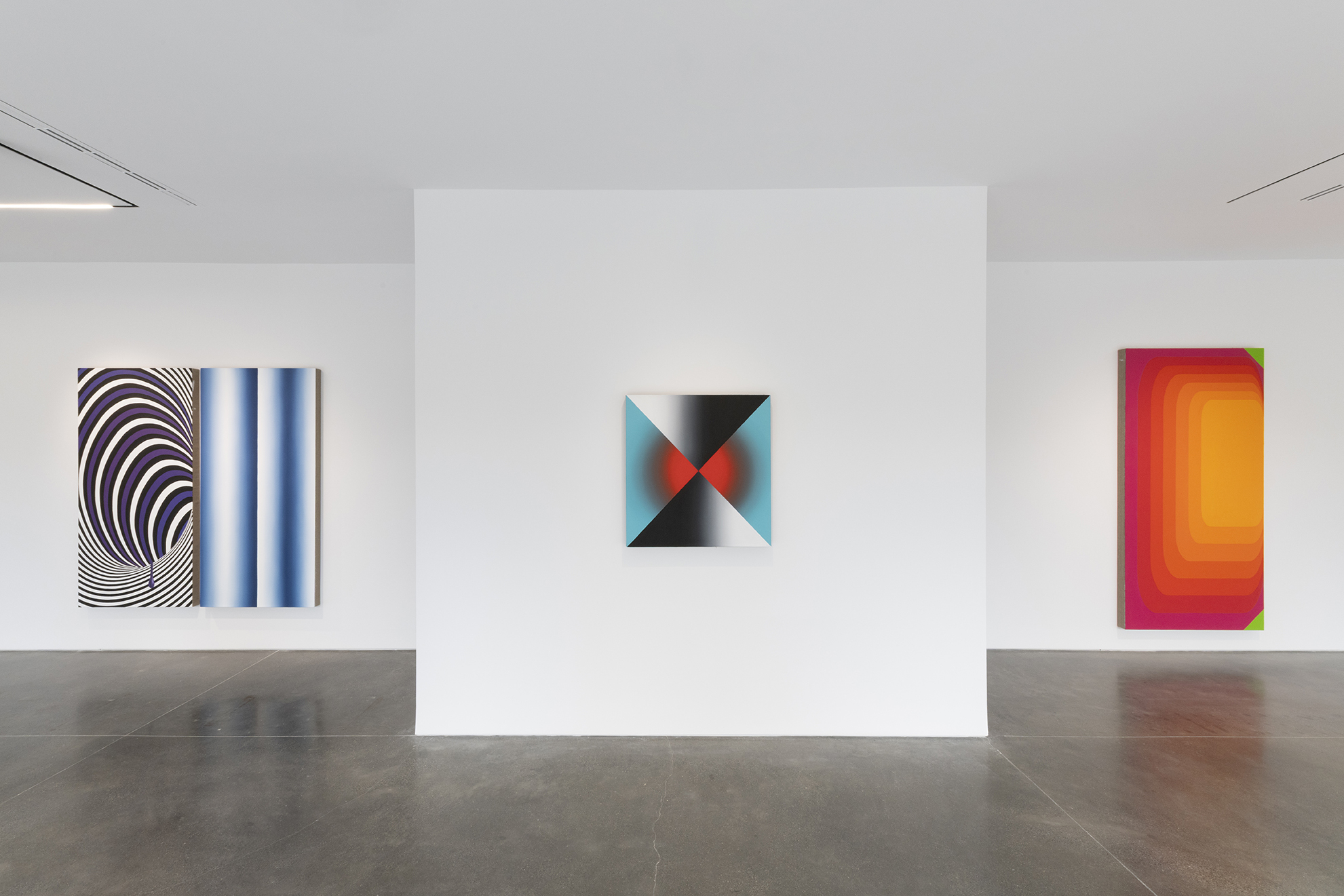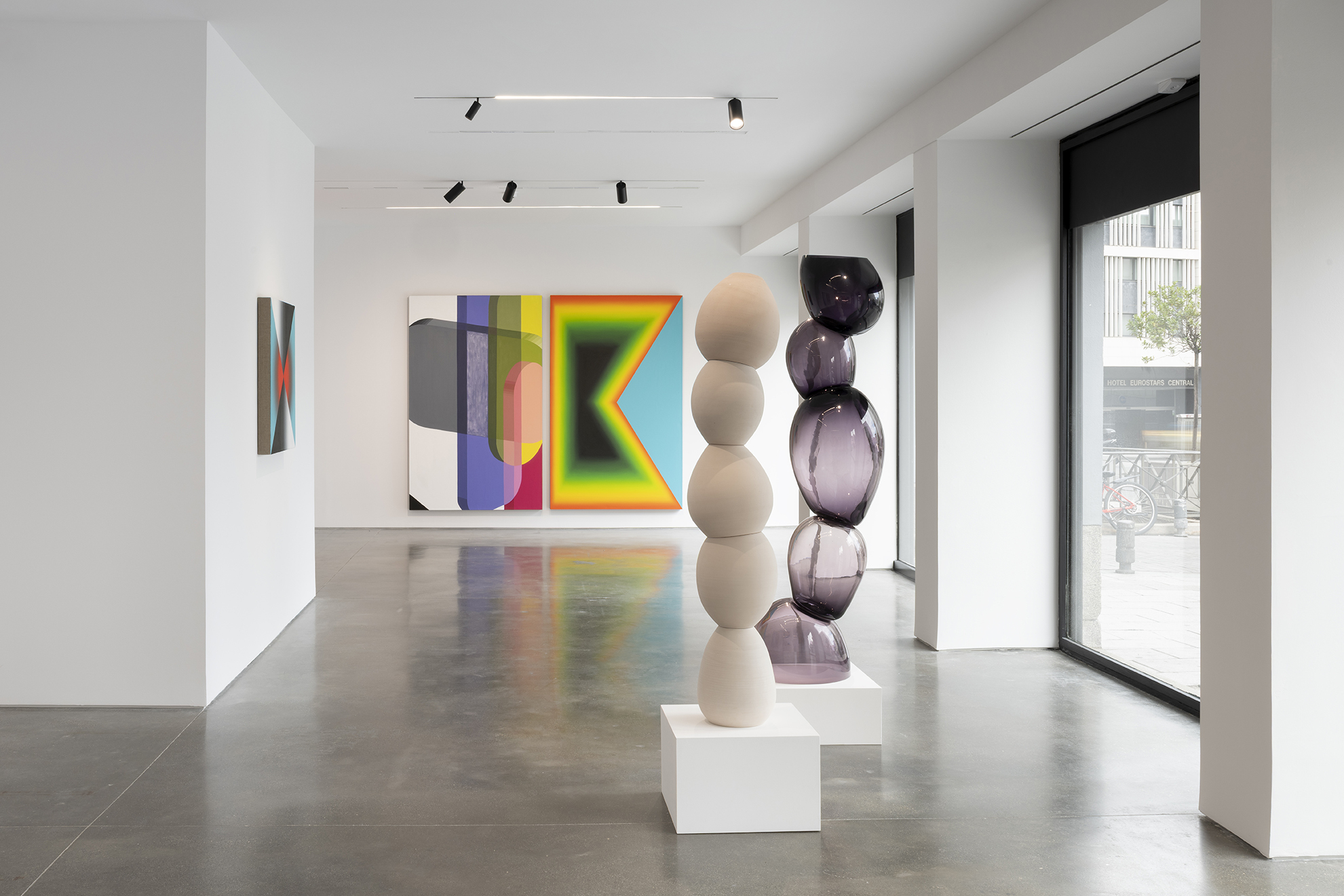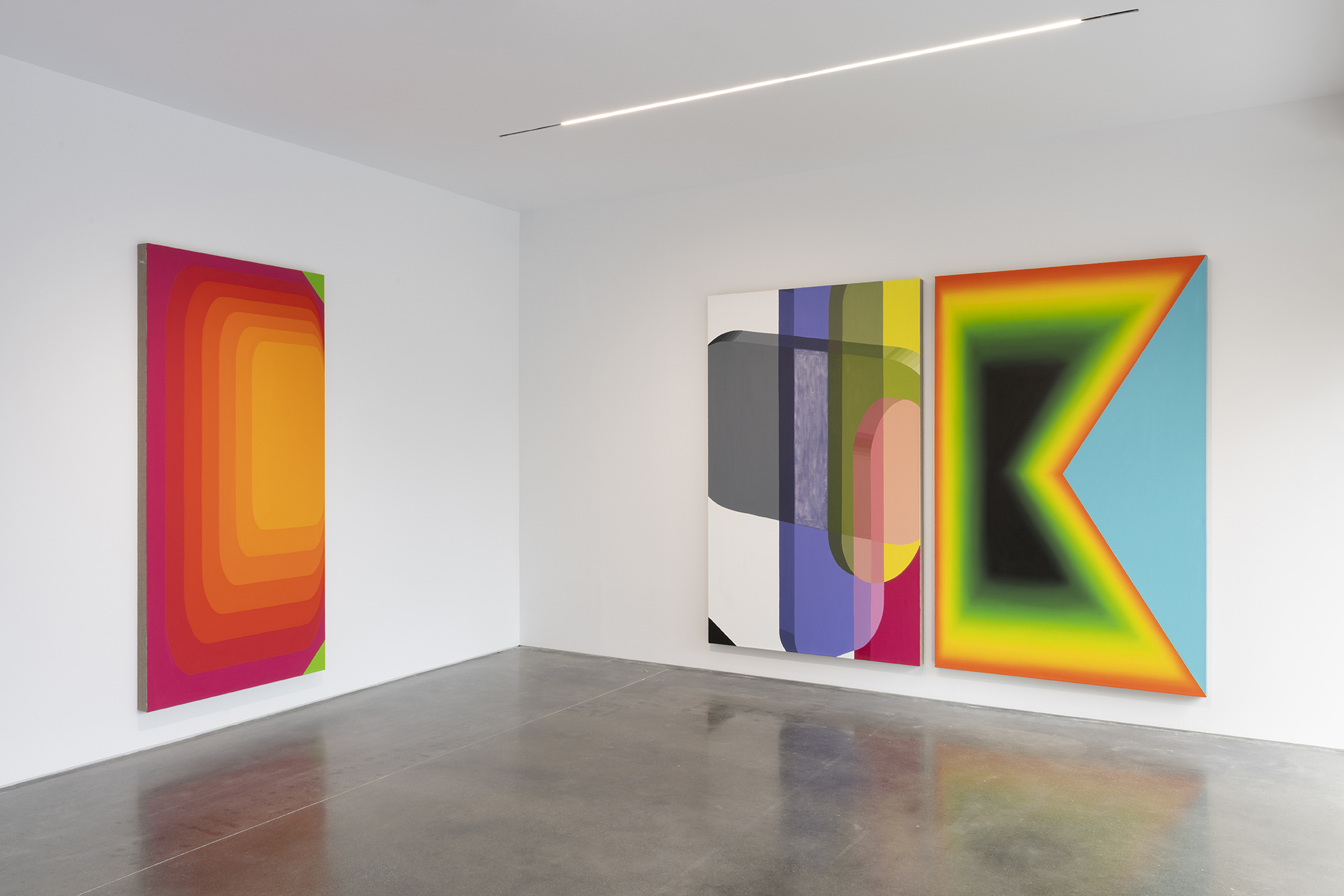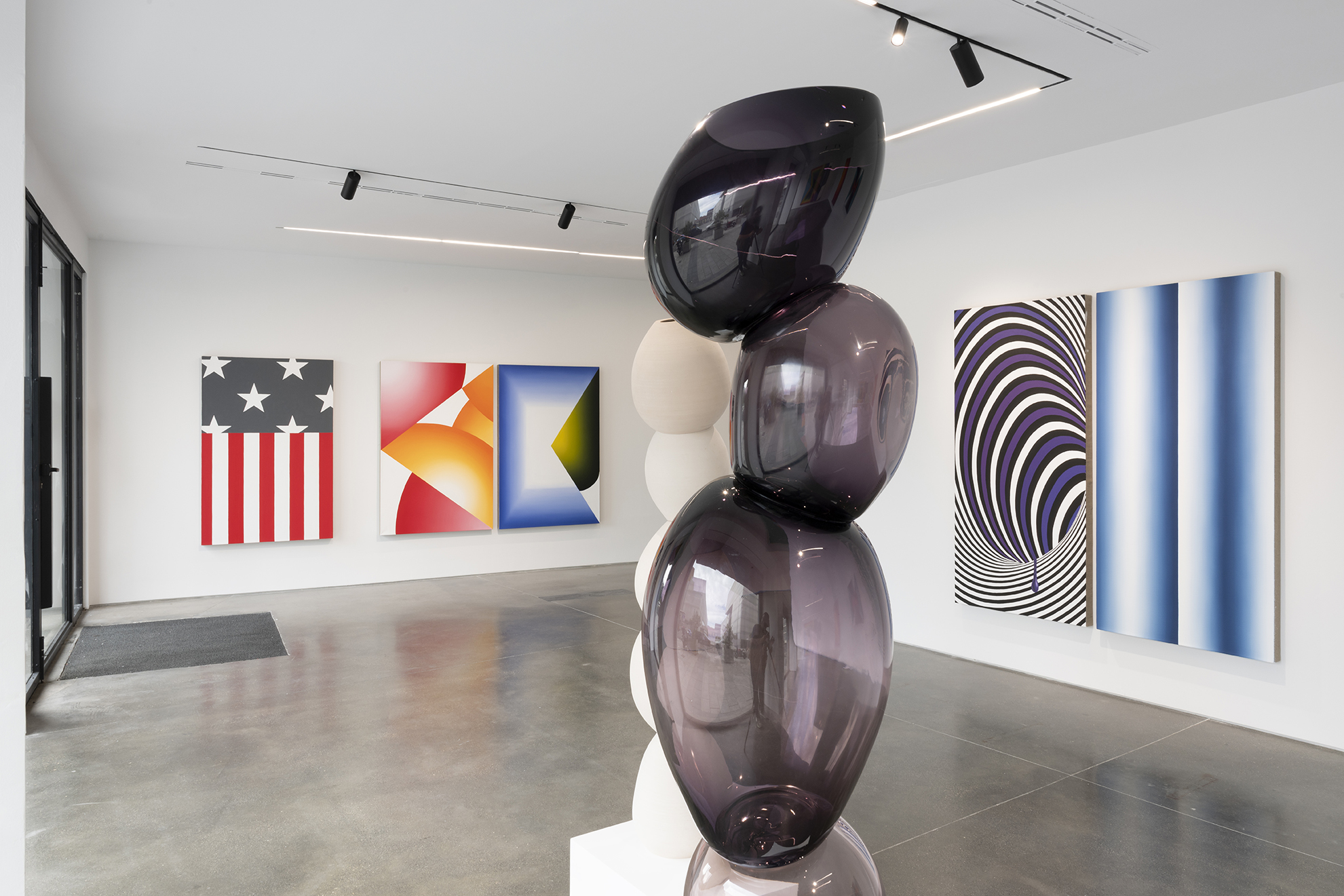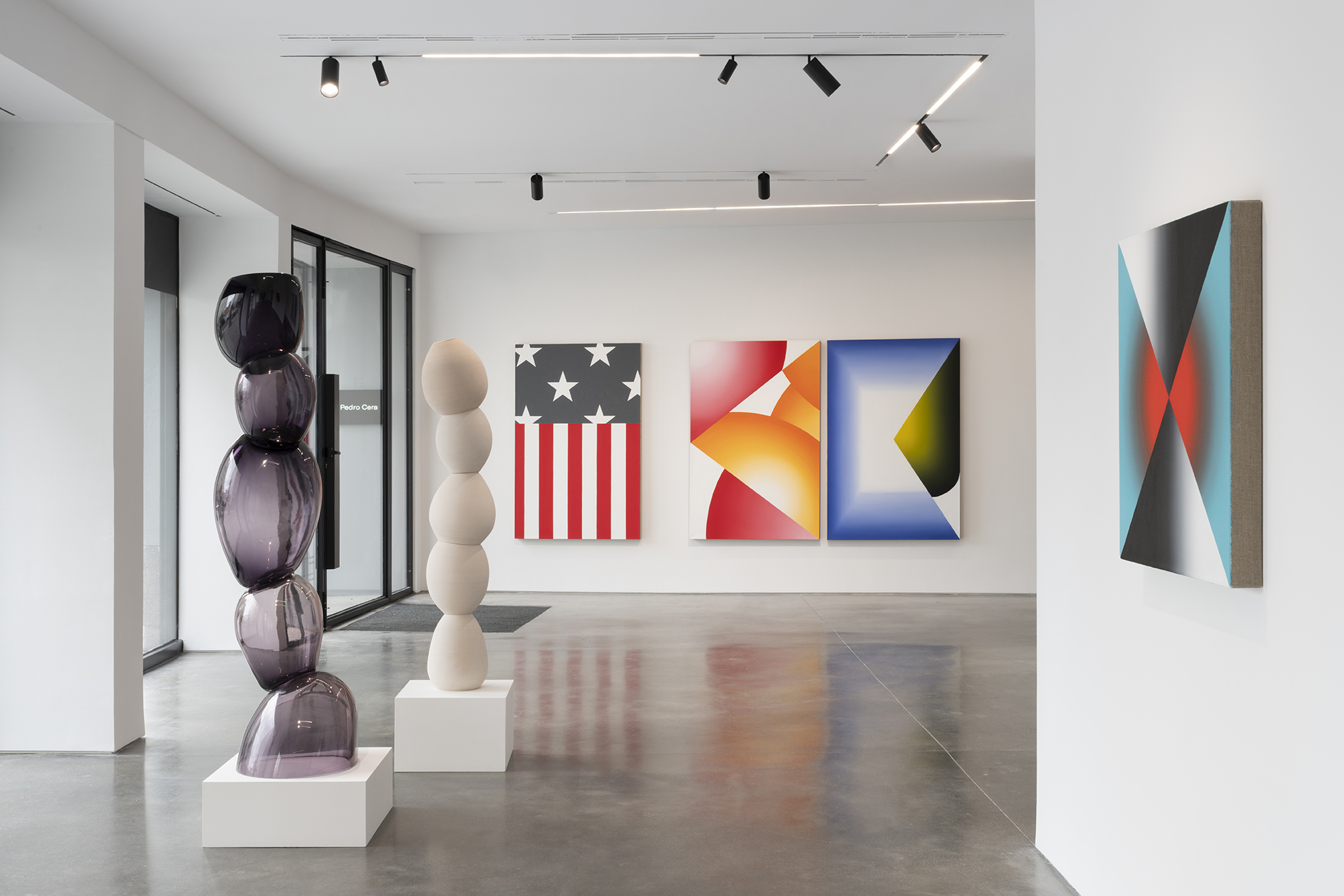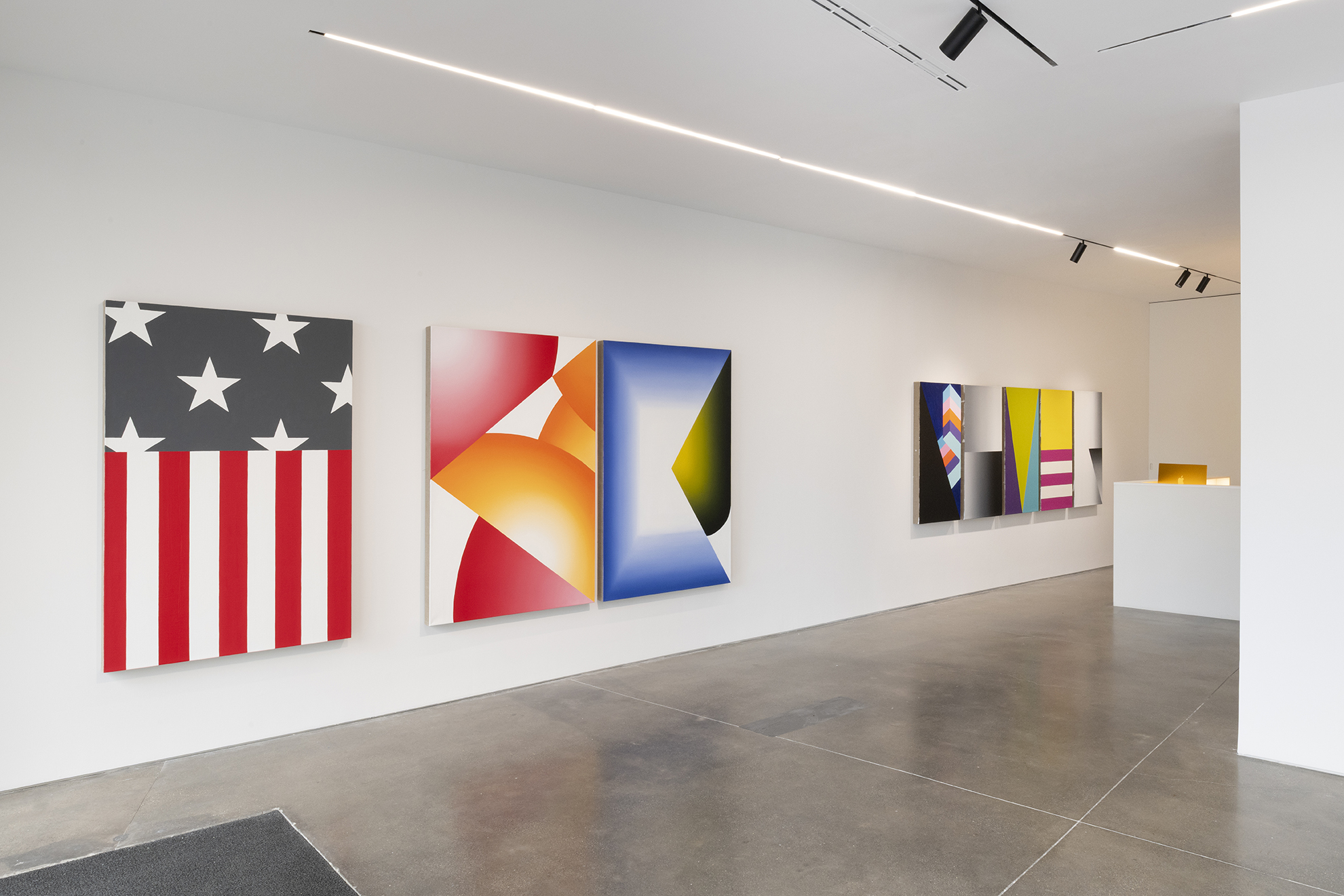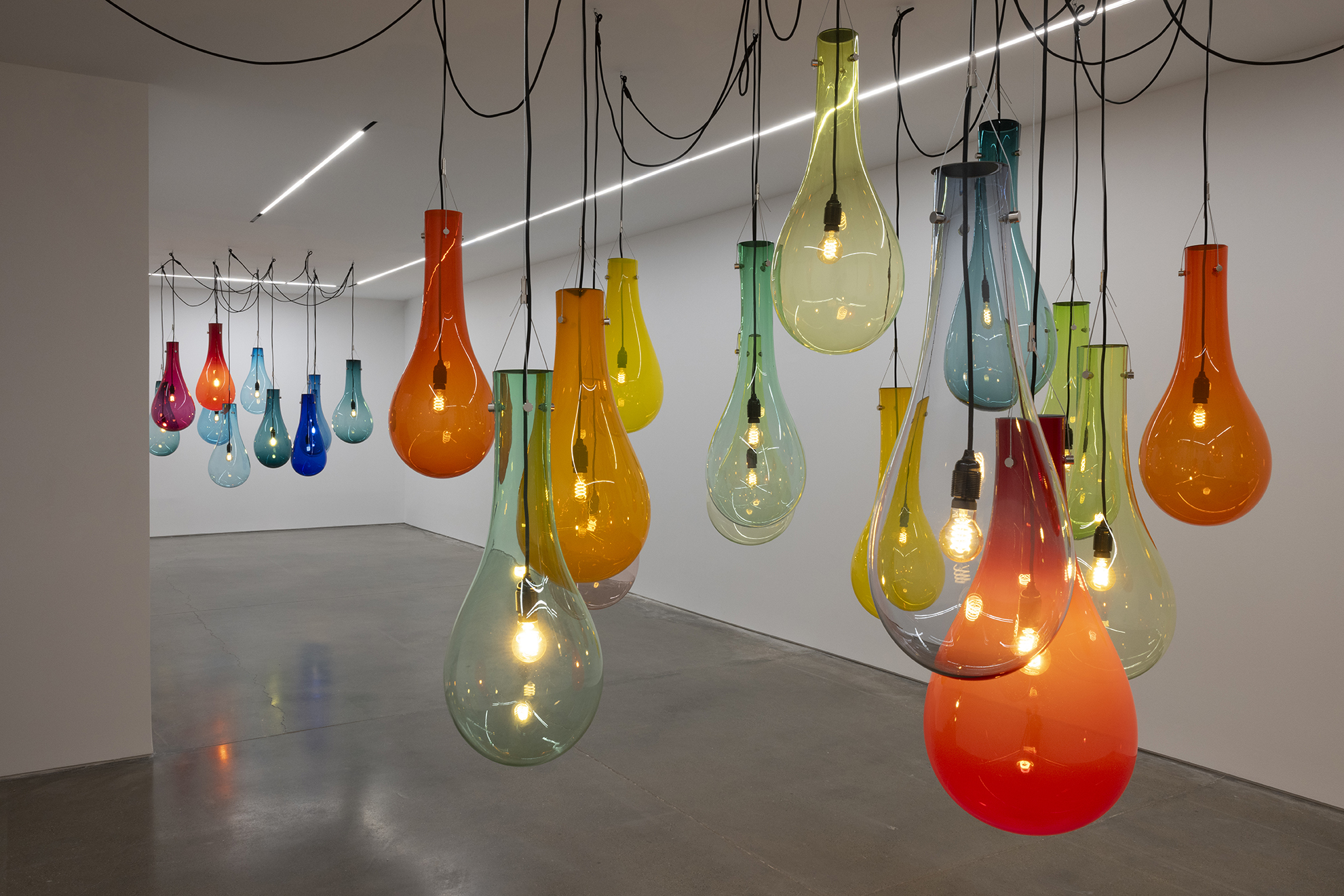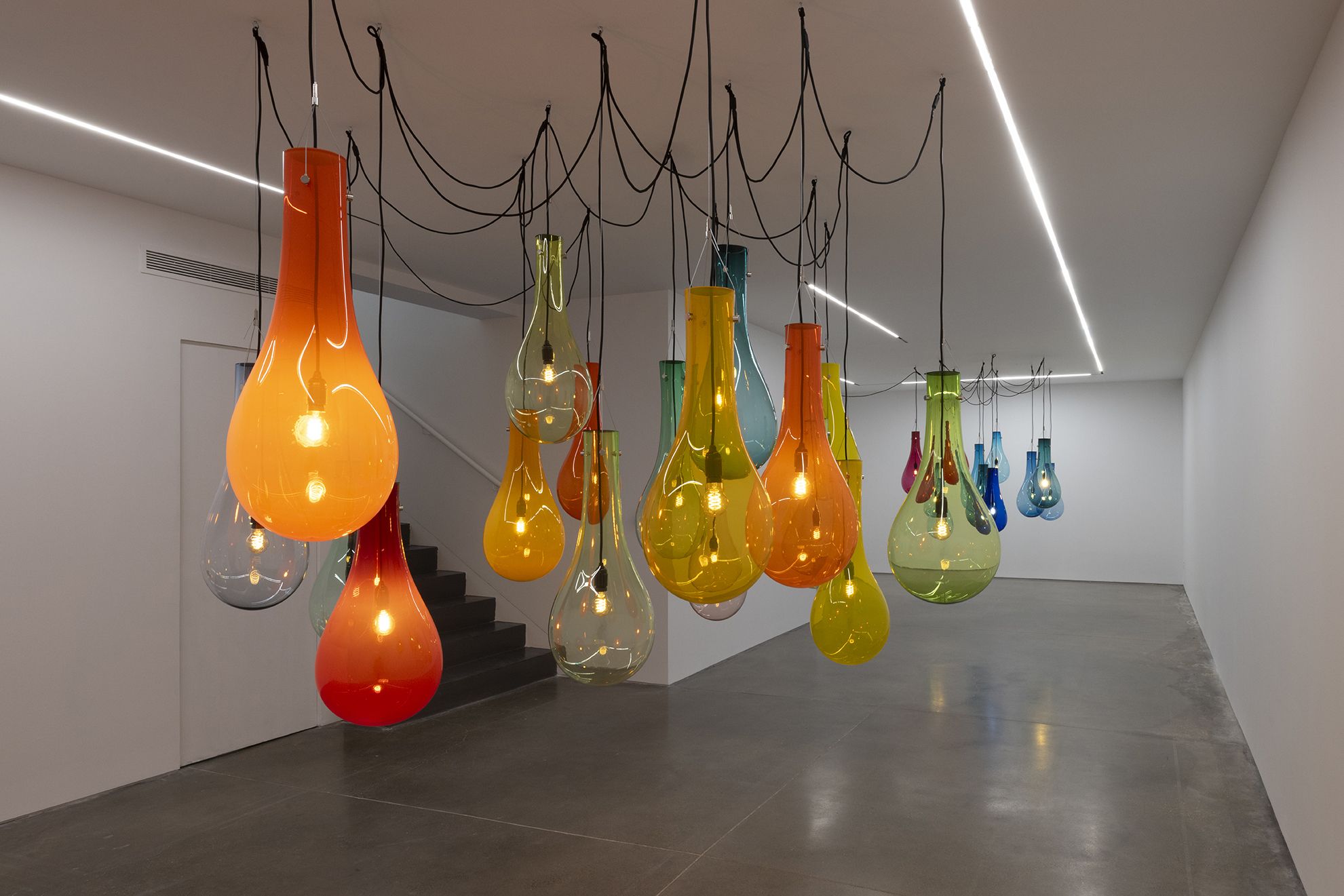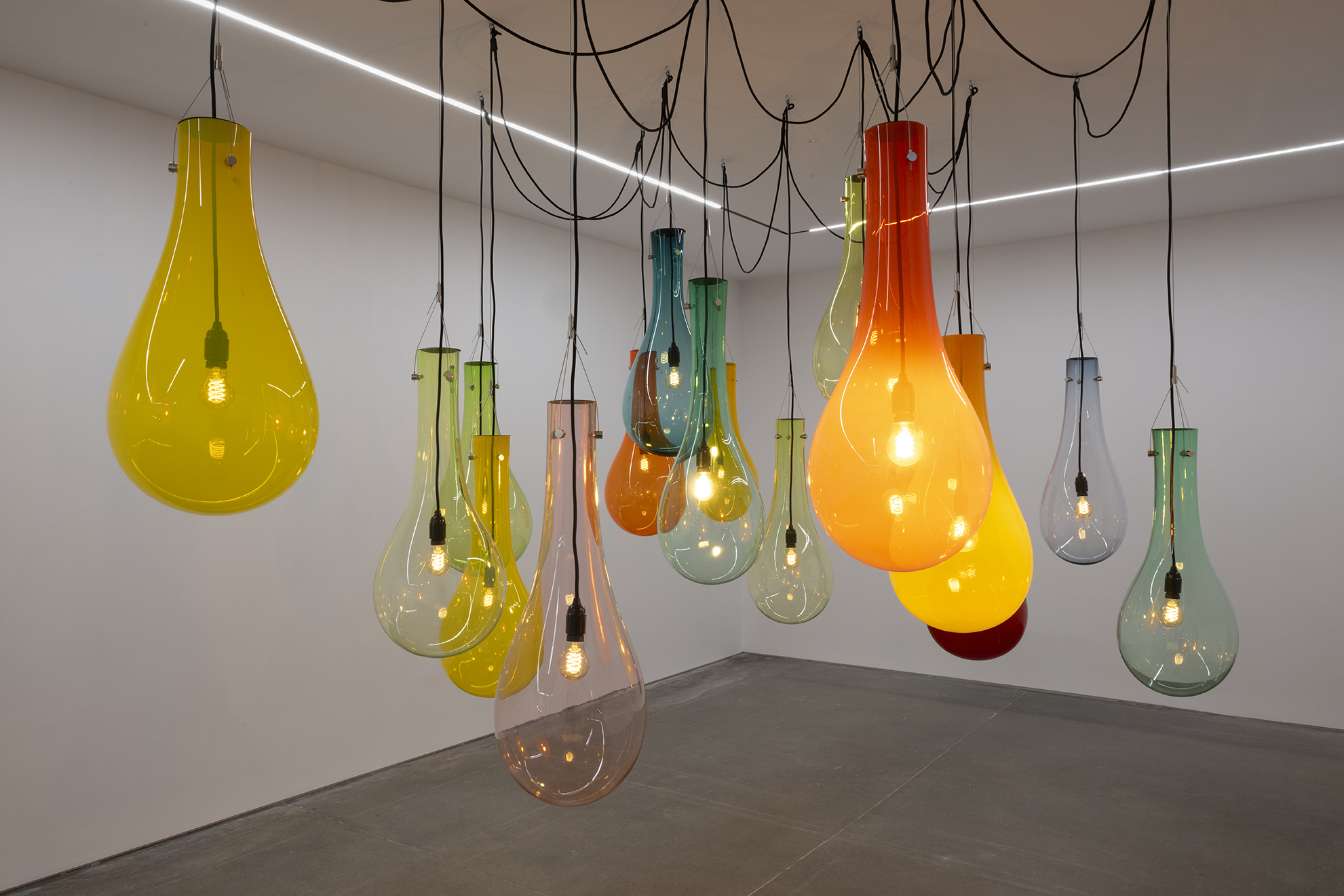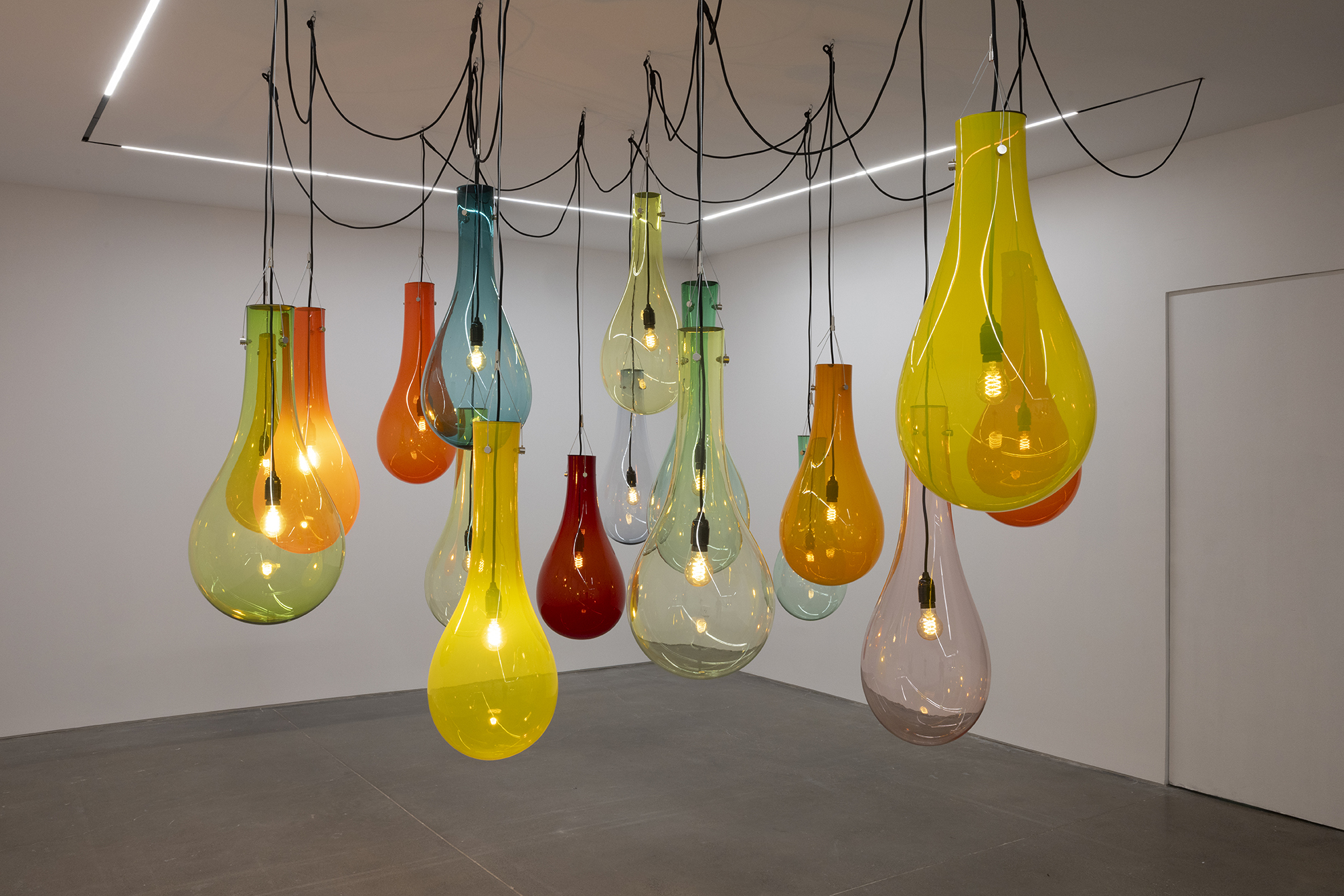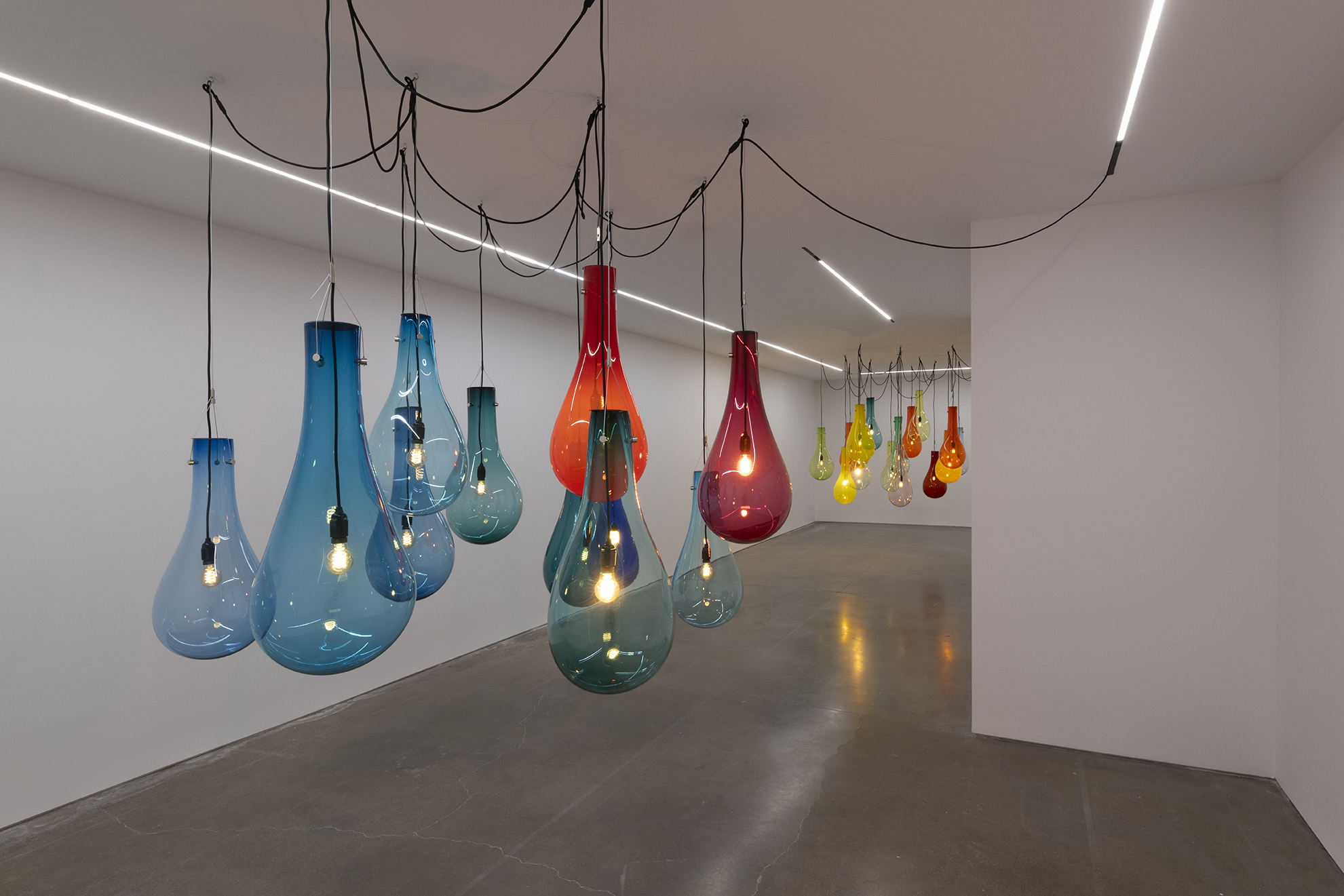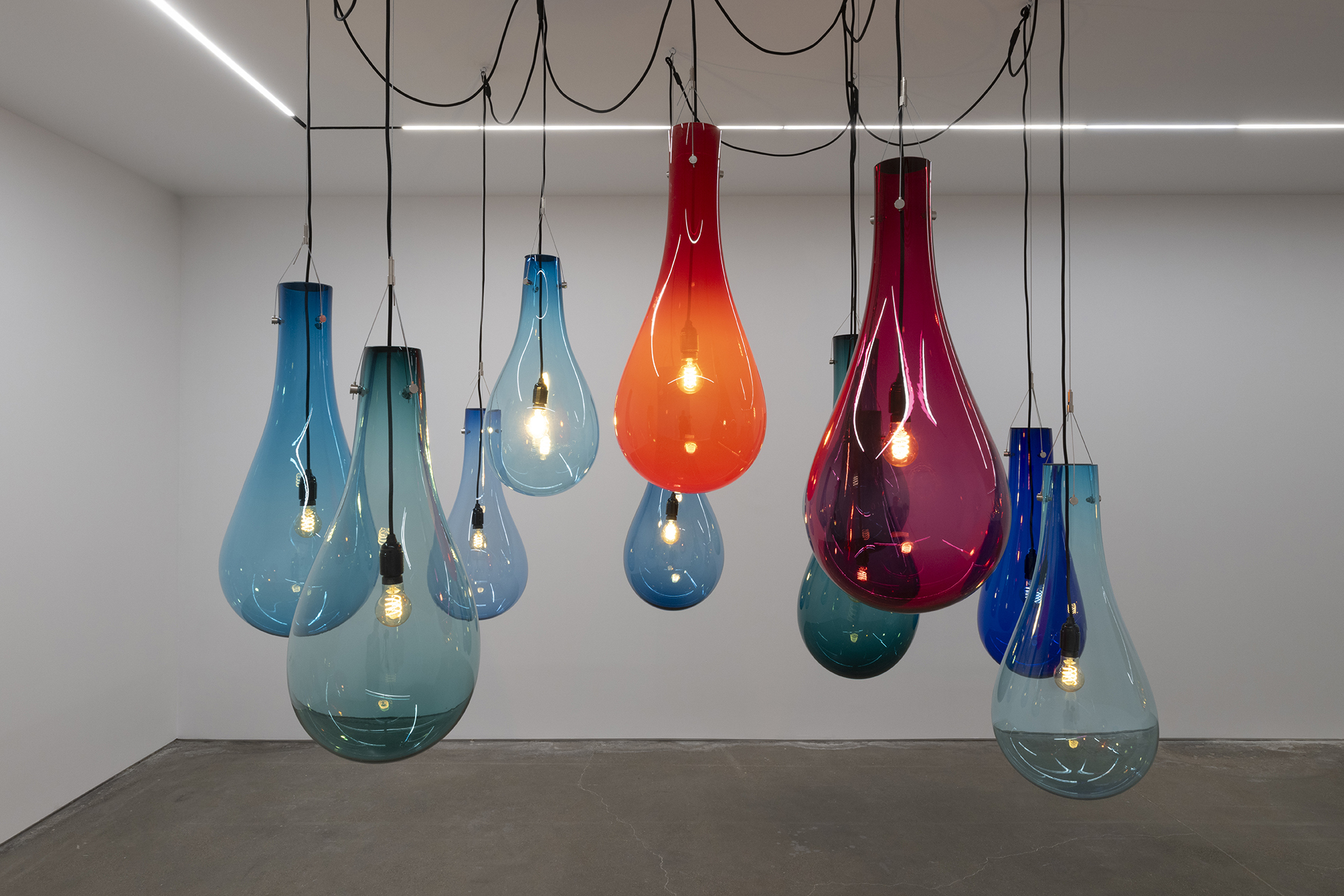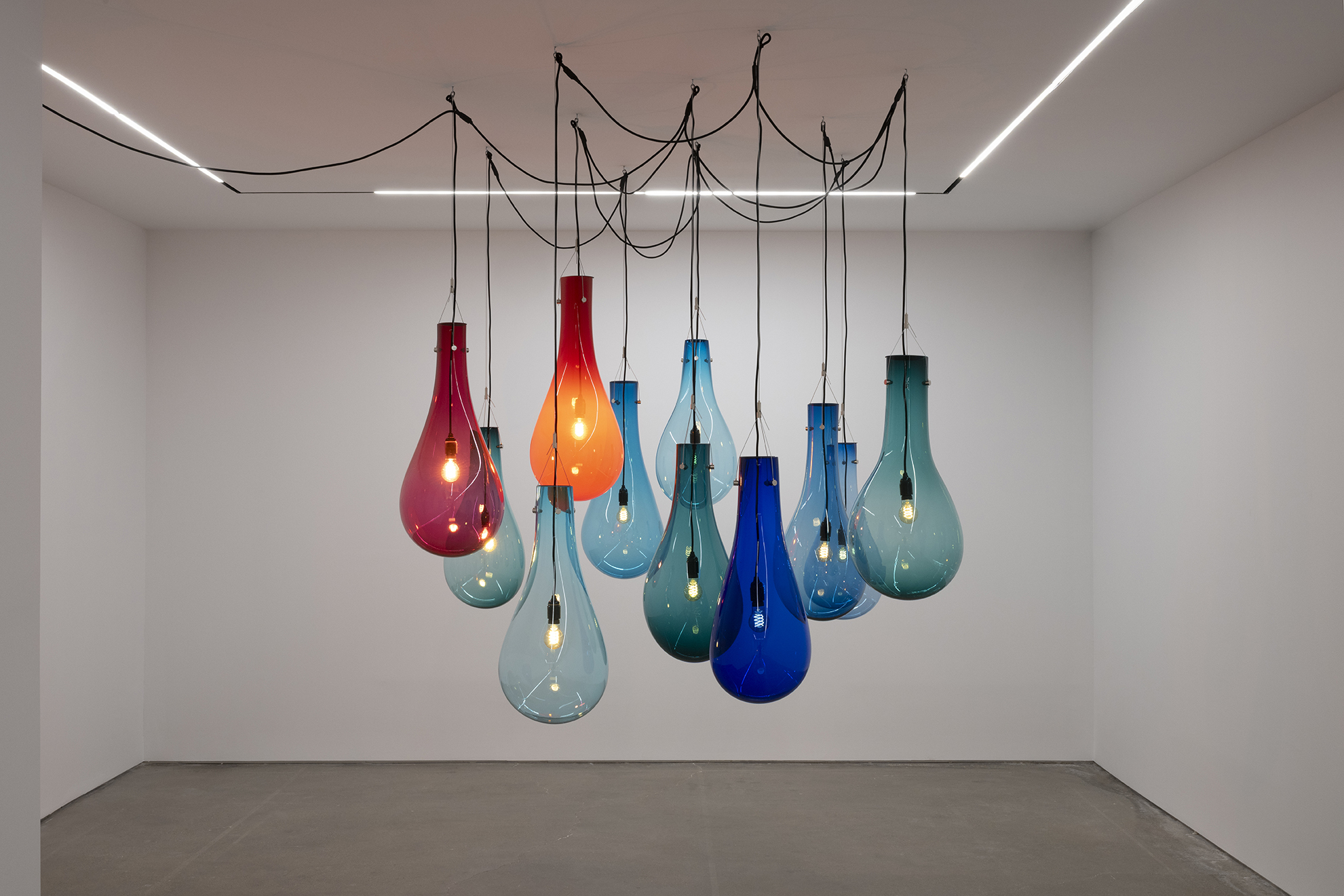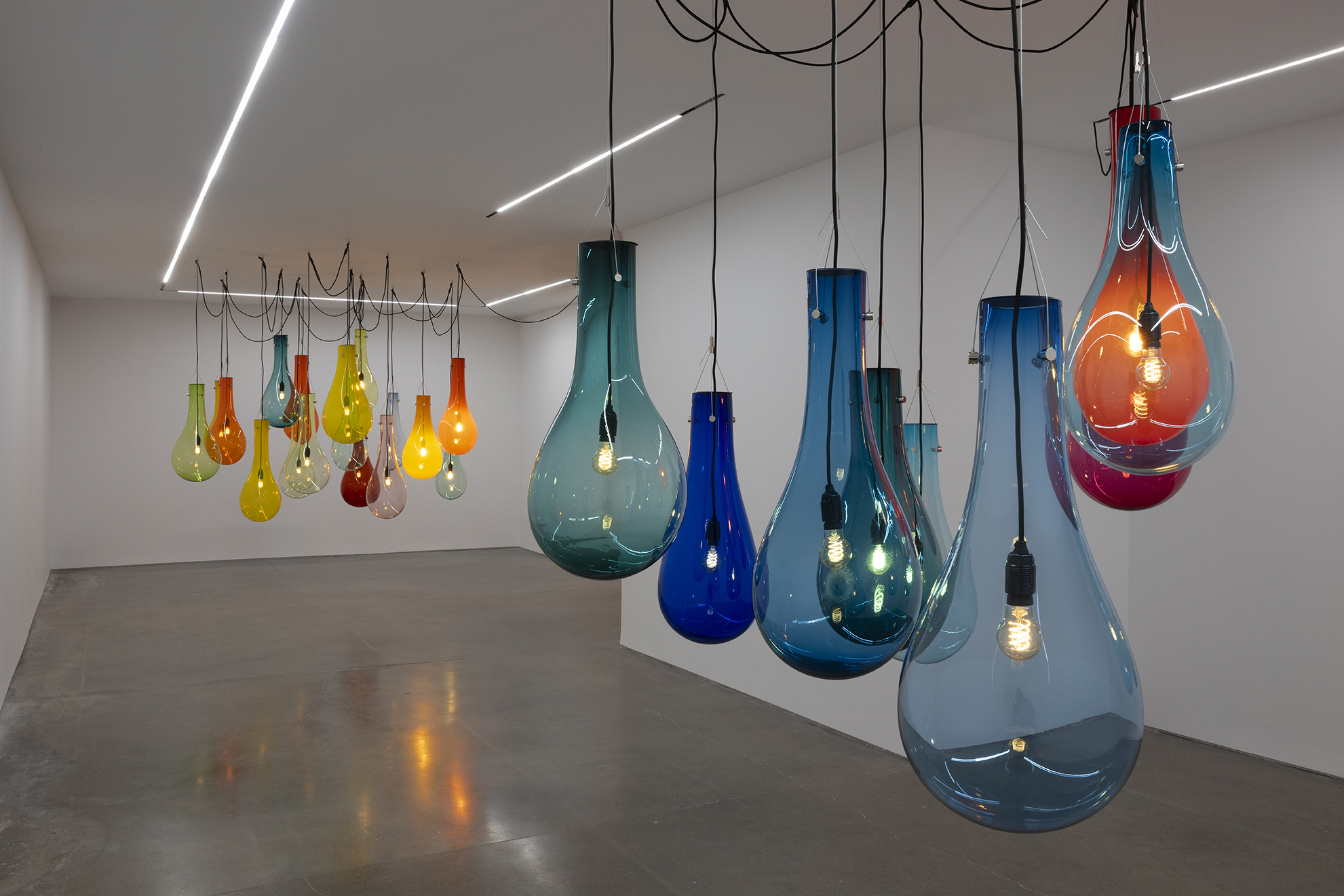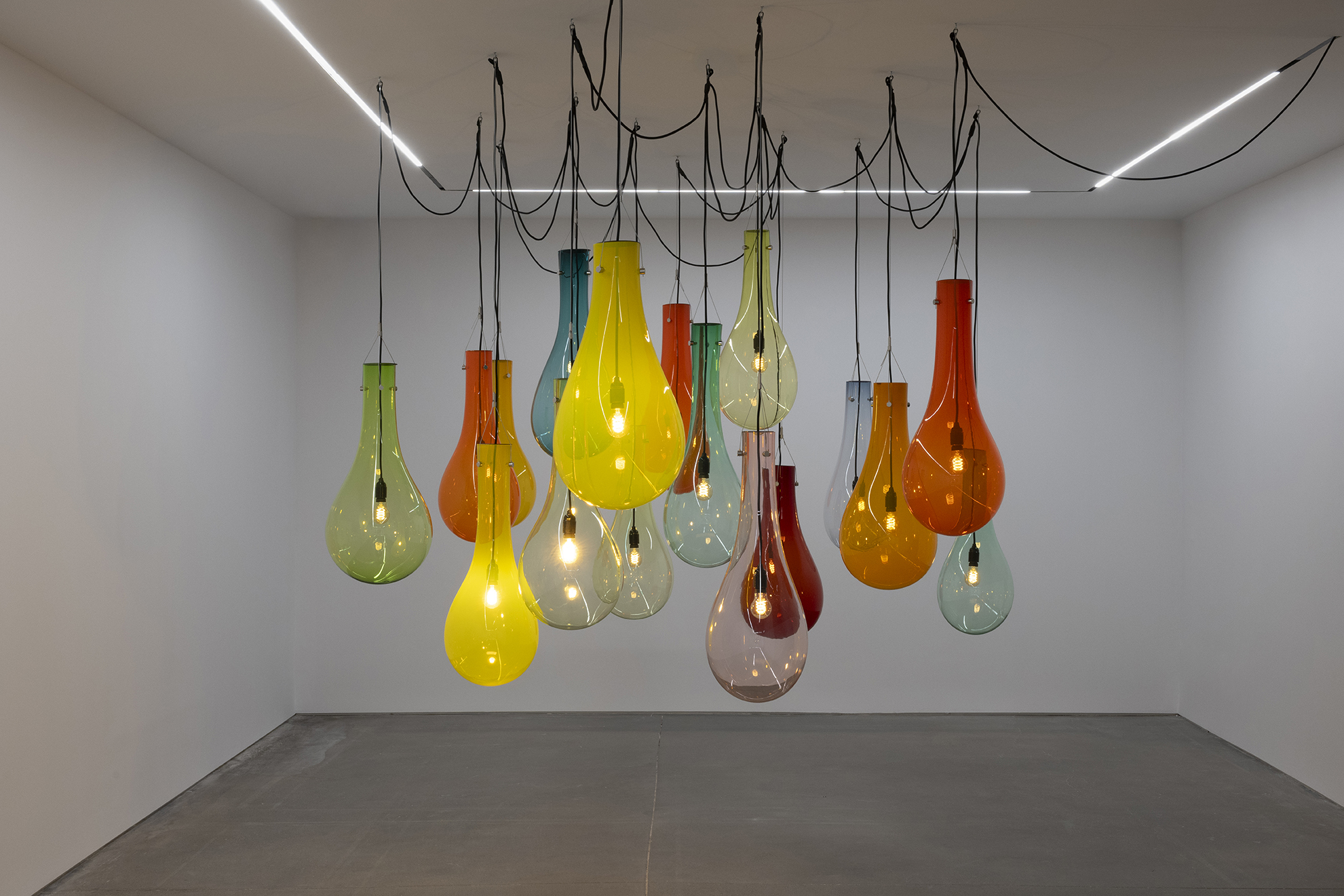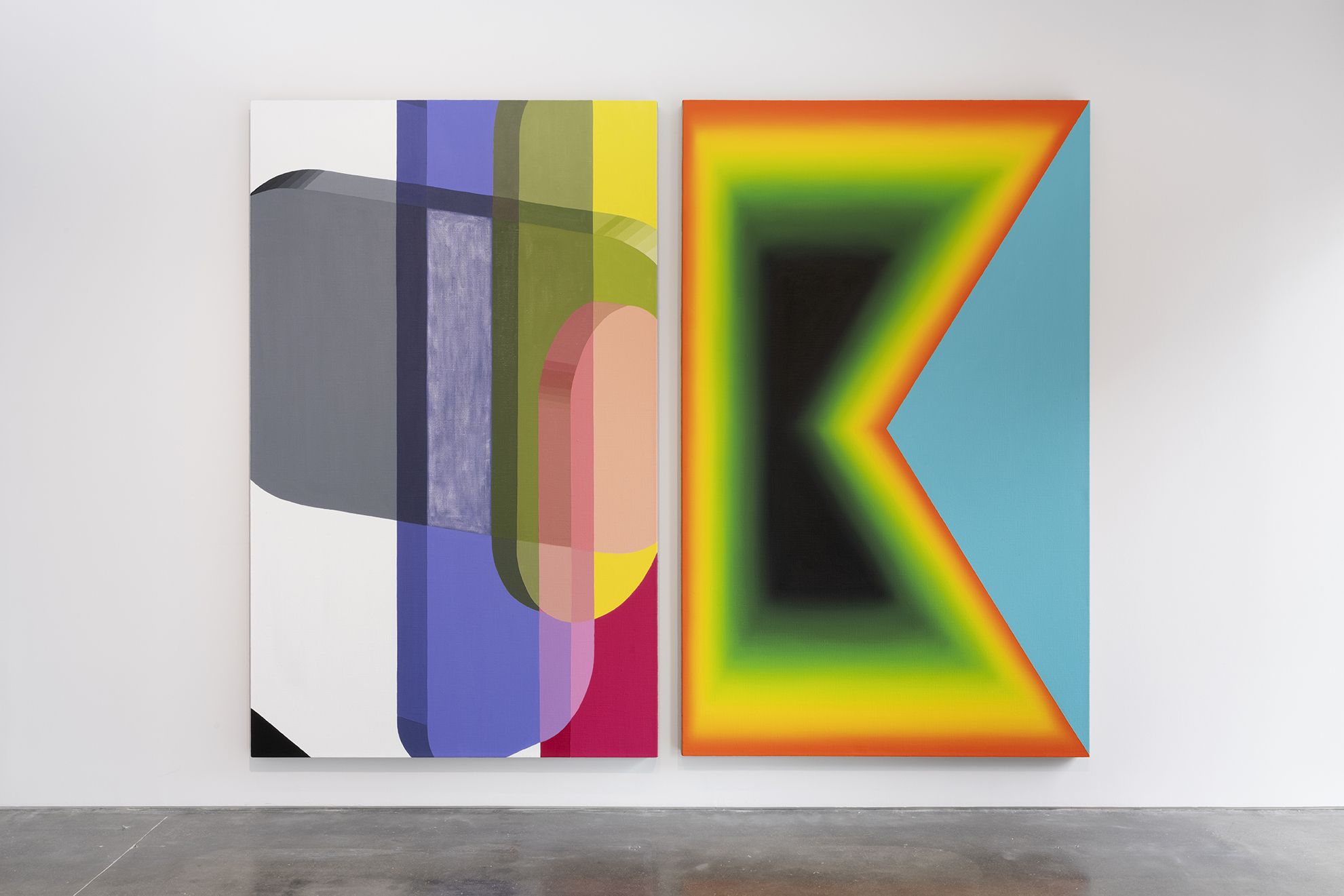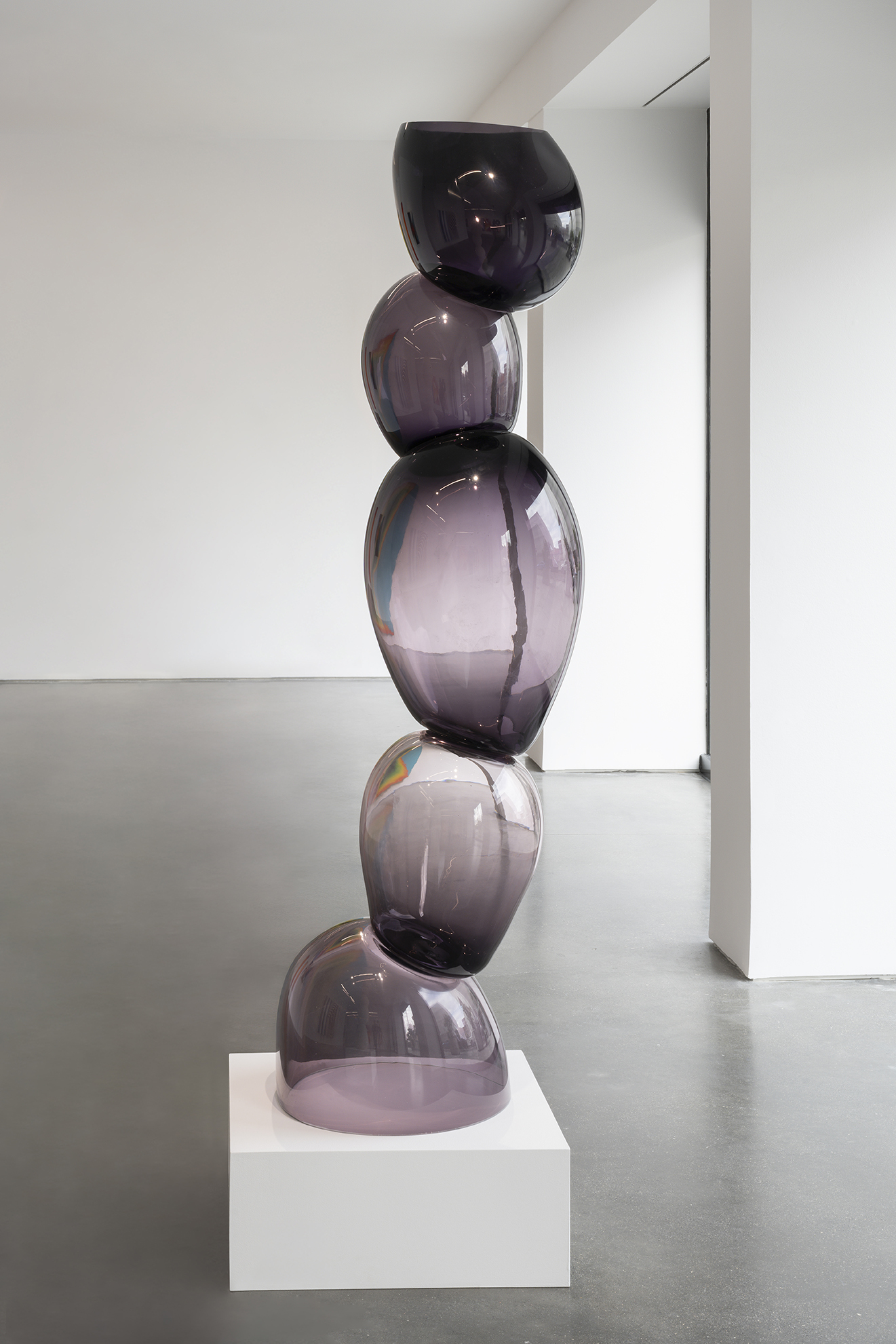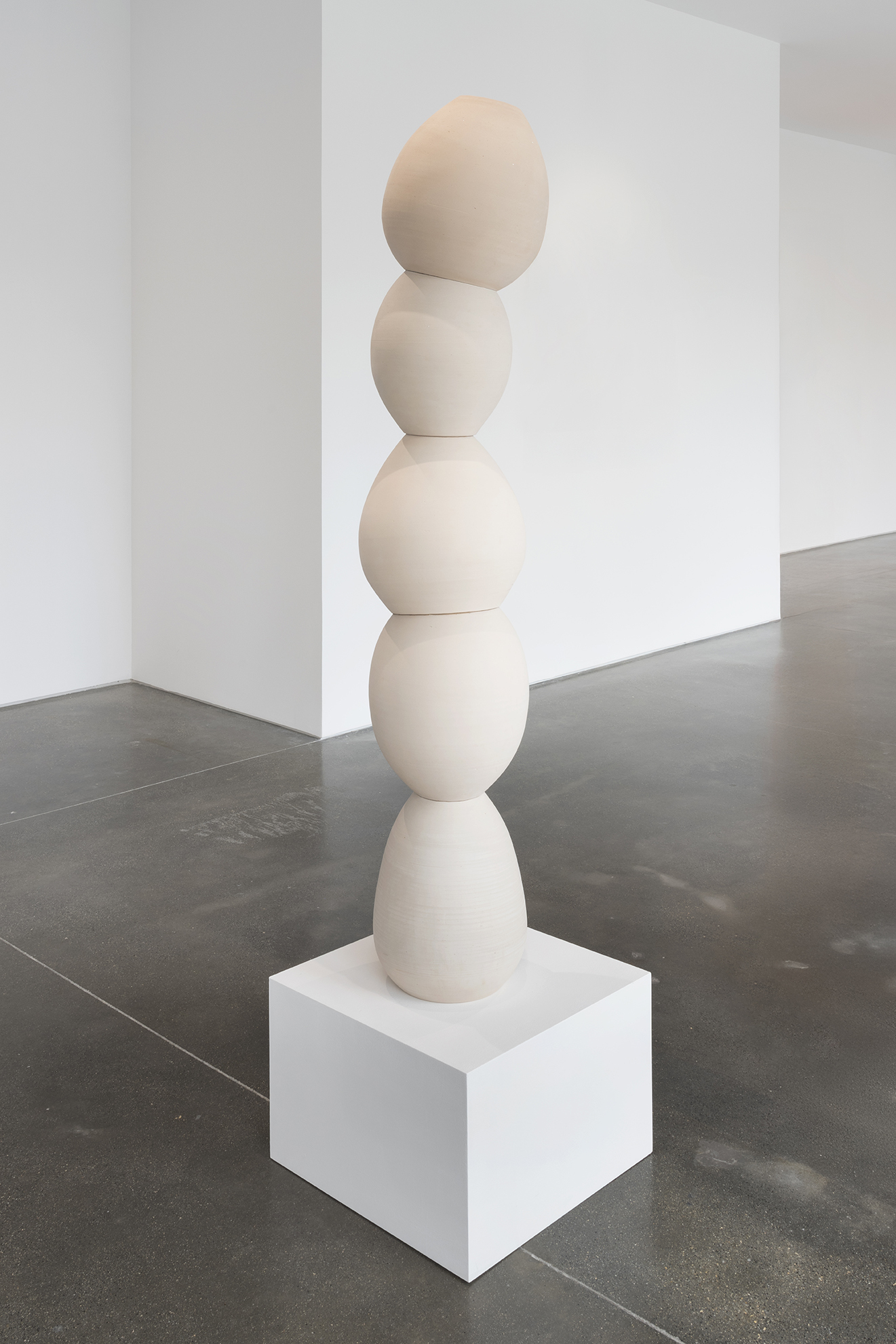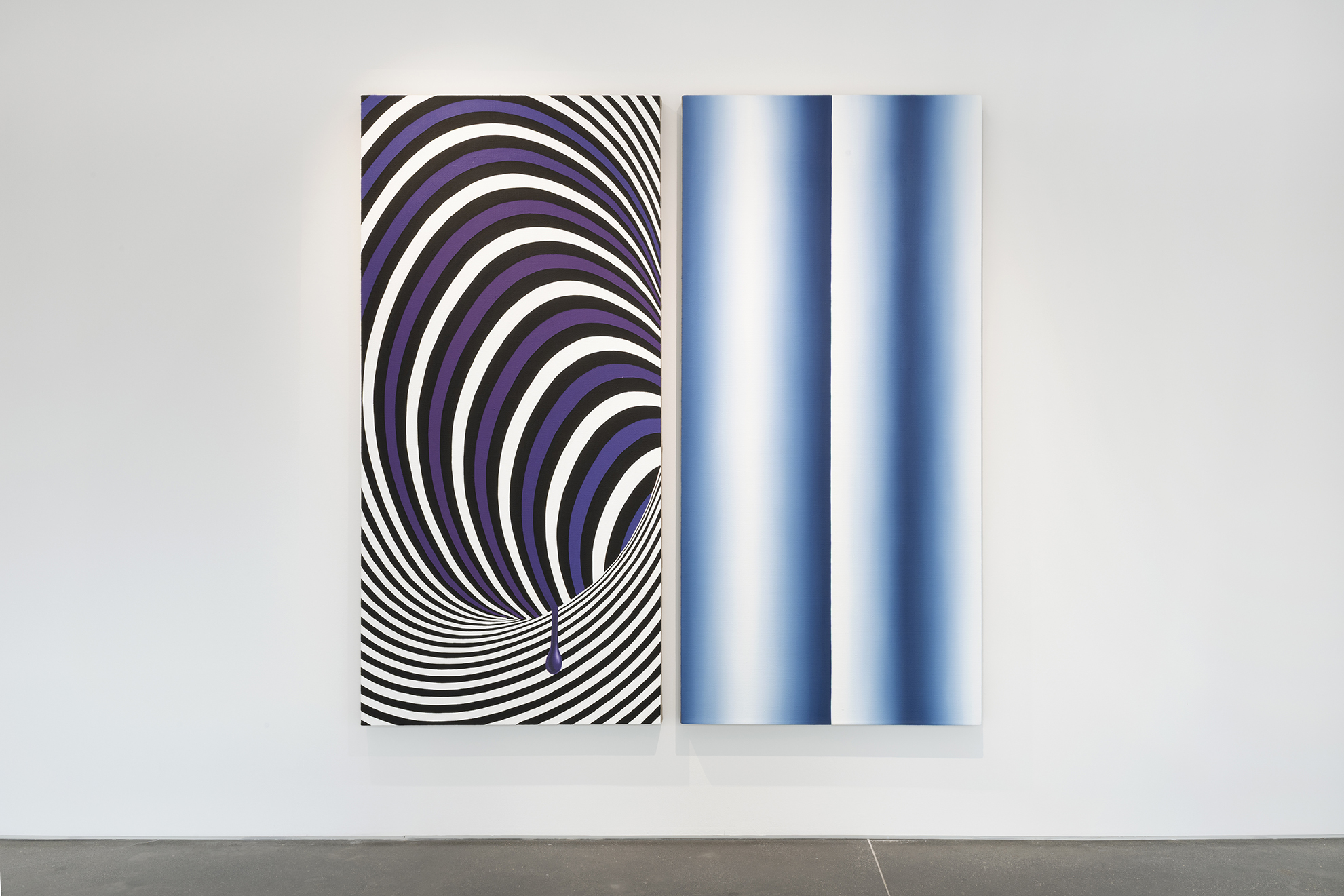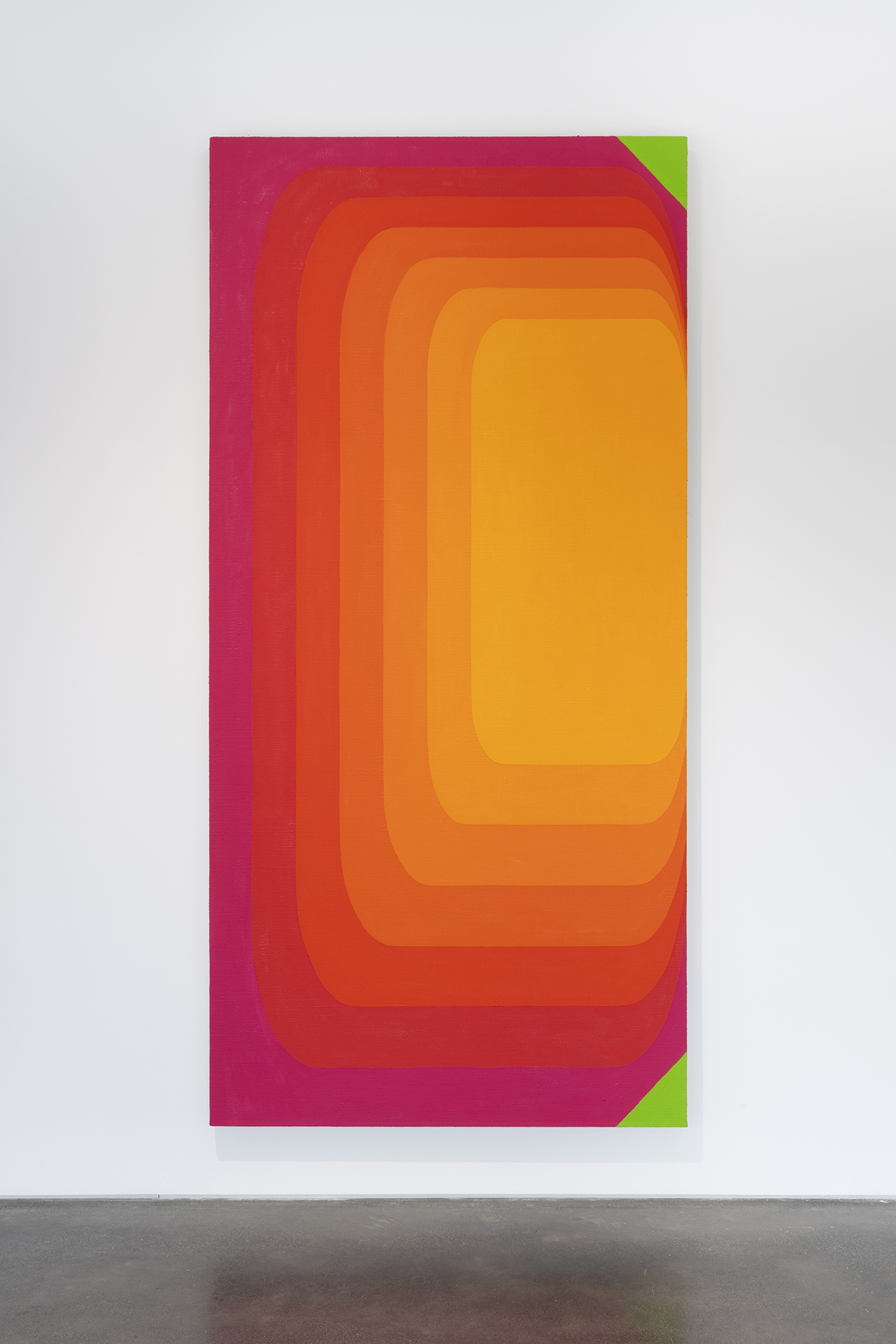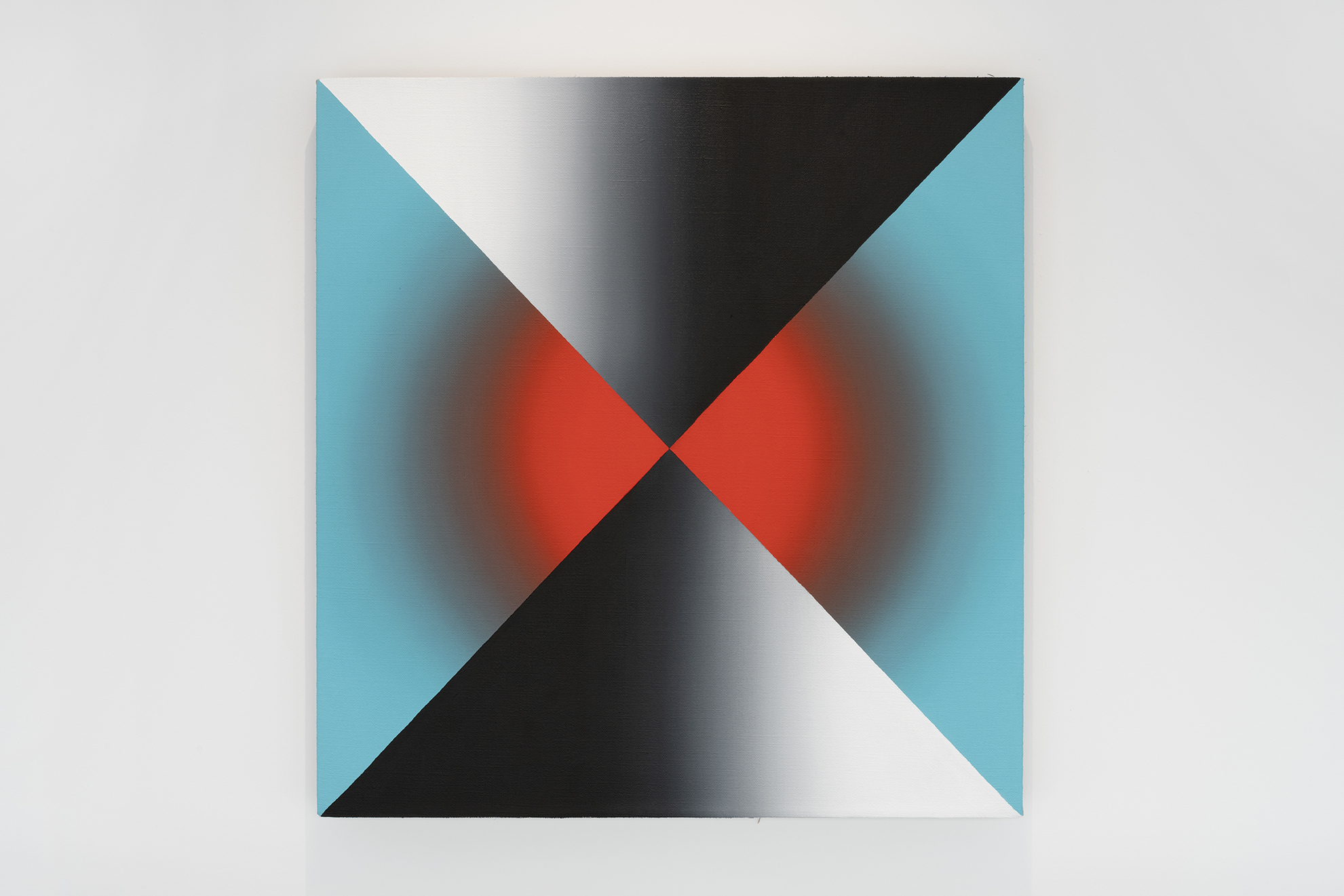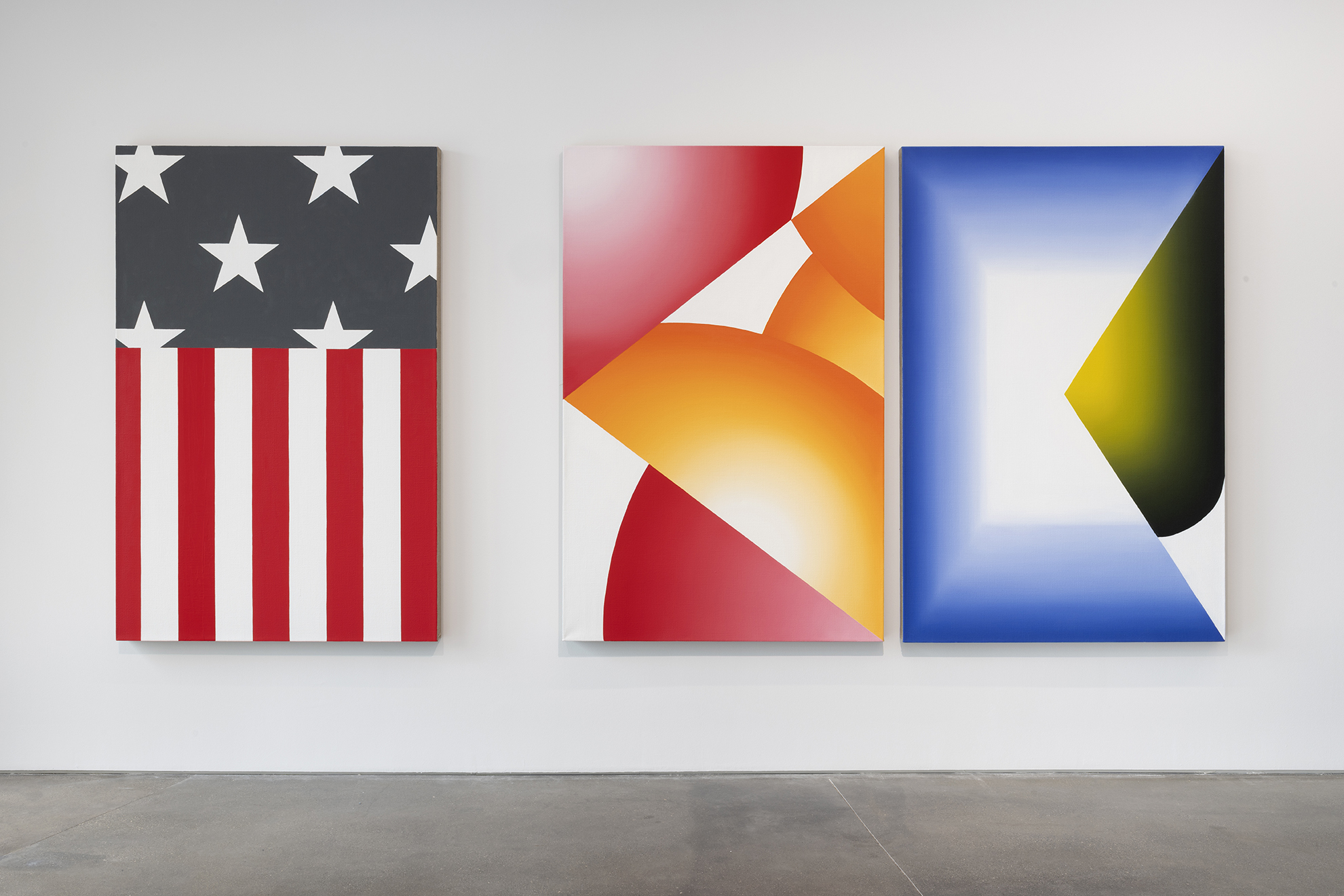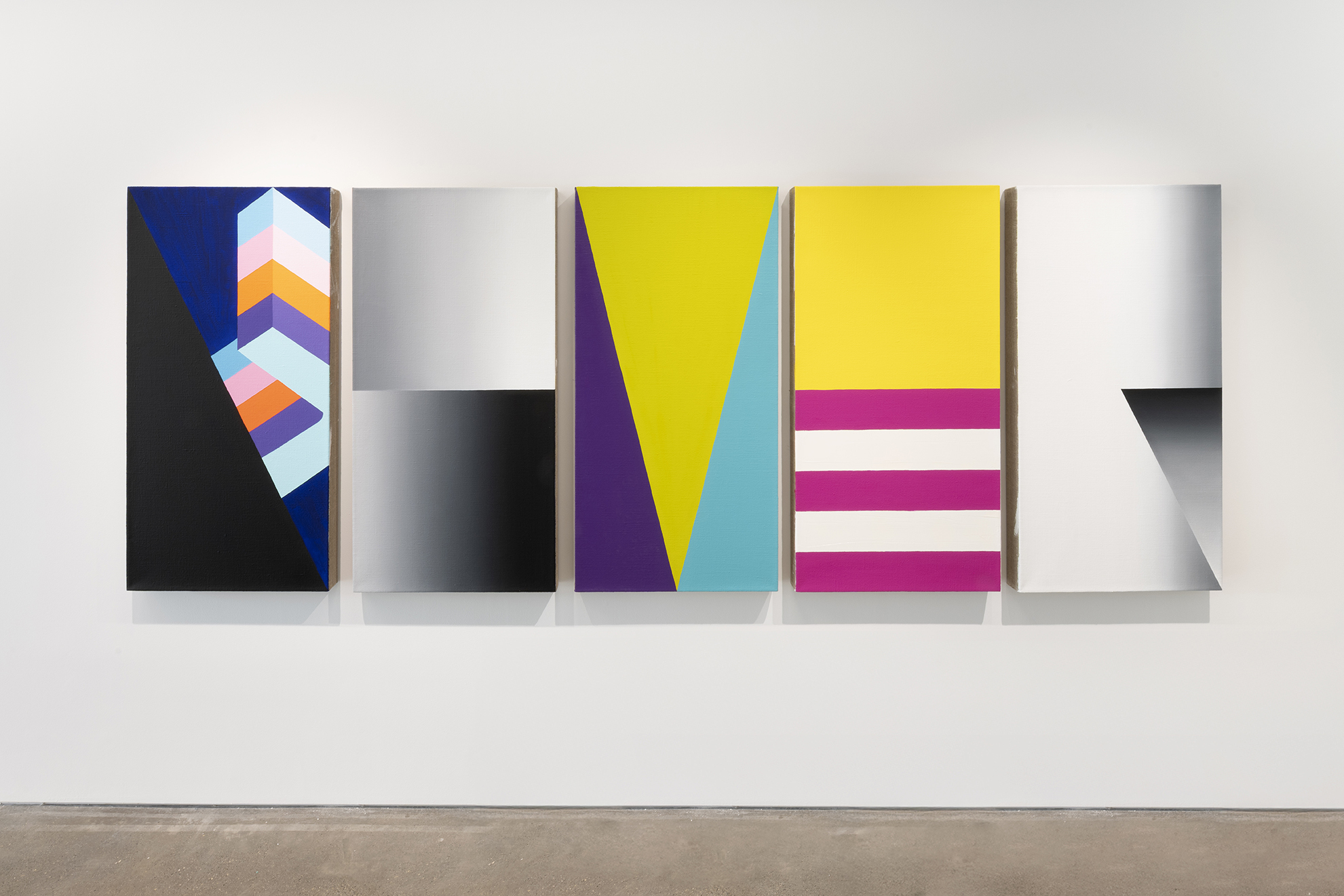Many feel ashamed of their bodies, very few feel ashamed of their minds
Tobias Rehberger
Many feel ashamed of their bodies, very few feel ashamed of their minds
Madrid
Internationally recognized for his unconventional approach to artmaking, Tobias Rehberger’s work unfolds within a dichotomous space where aesthetic symbolism and functional meaning meet. Many feel ashamed of their bodies, very few feel ashamed of their minds, the first solo exhibition by the acclaimed German artist at Pedro Cera’s Madrid location, introduces three different series of works that reflect key concerns explored throughout his practice since its early stages. Through material translations and visual ambiguity, the presented pieces span painting and glass, each medium articulating an ongoing investigation into systems of representation.
This line of inquiry is immediately apparent in the new series of paintings, where Rehberger begins by reinterpreting the Latin alphabet, devising a system through which linguistic structure is transformed into an abstract visual vocabulary. At first encounter, the compositions recall the chromatic intensity of Op Art, presenting themselves as geometric configurations and interlocking fields of color. However, embedded within these structures are encrypted letters, words and acronyms that surface through spatial organization, creating a deliberate tension between perceptual immediacy and cognitive recognition that foregrounds questions about the visual construction and decoding of meaning.
While materially distinct, a similar premise extends to the new groups of mouth-blown glass lamps presented on the gallery’s lower floor. Shaped around a droplet form and differentiated by color, the works emphasize a dual ontology in which artisanal fragility, marked by the idiosyncrasies of hand-crafted production, coexists with the utilitarian logic of industrial design. Illuminated from within by a spectral glow, they follow a programmed rhythm that alternates in a choreographed sequence and transforms the space into a shifting luminous environment. In so doing, the works destabilize the conventional expectation of art as static object, while also exposing the collaborative systems of labor underlying their production. Manufactured by outsourced workshops, the lamps stem from a dispersed authorship that consumer culture often obscures, further reinforcing the ways in which Rehberger has consistently embraced production methods that deliberately fragment creative agency.
It is precisely within this expanded framework that the large-scale glass sculptures extend the artist’s investigation into the intersections of use and display, recalling his long-standing series of (mother) sculptures through their composition of stacked glass elements balanced in seemingly precarious formations. Their uppermost sections remain intentionally open, suggesting the latent potential of functioning as vases or vessels, a reference to the portrait vase series initiated in the 1990s. Together with the lamps, these works articulate a sustained meditation on hybridity and the mutable conditions of the artwork’s identity, which in Rehberger’s practice is persistently negotiated.
Playing with cultural conditioning, his use of everyday practical forms serves to probe the perceived divide between aesthetic value and utility, and to challenge imagined ideas about what a work of art is allowed or supposed to do. With Many feel ashamed of their bodies, very few feel ashamed of their minds, Rehberger continues to test the limits of authorship, functionality and artistic status, through diverse material and conceptual strategies that open new places of possibility.
